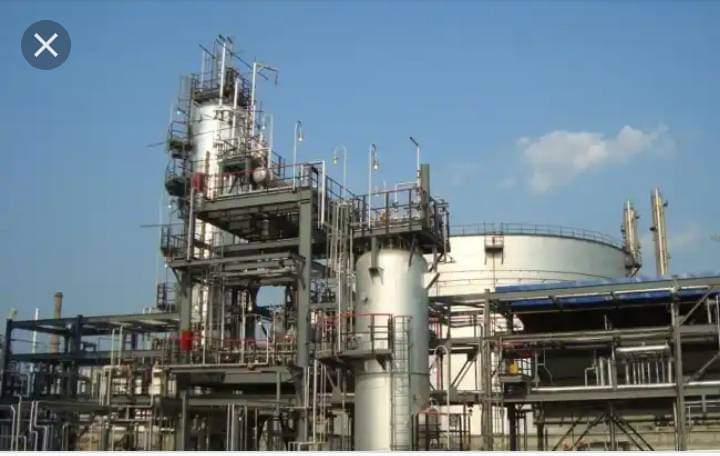Share!
The Federal Government is set to supply up to 400,000 barrels of Nigerian crude oil daily to the Dangote refinery under a naira-for-crude agreement.
According to a report by Bloomberg, this arrangement is expected to roll out over the next two months, with approximately 24 million barrels of Nigerian crude being delivered between October and November 2024.
This increase in processing capacity at the Dangote refinery is projected to have a significant impact on both the refinery’s operations and the local oil industry, potentially reshaping the region’s import and export markets.
This development follows the Federal Government’s recent announcement that the naira-for-crude deal has officially commenced.
Recall Tribune Online reported that the Nigerian National Petroleum Company Limited (NNPCL) will begin supplying crude oil in naira to the Dangote Petroleum Refinery this week, with three additional refineries expected to start producing Premium Motor Spirit (PMS).
According to cargo allocations reviewed by Bloomberg News, Dangote’s growing dependence on local crude feedstock is likely to disrupt the Atlantic oil market by significantly reducing Nigeria’s crude oil exports.
The 650,000-barrel-per-day Dangote refinery, the largest in Africa and Europe, is set to claim between 13 and 14 shipments from Nigeria’s typical monthly export program of about 50 cargoes.
Ronan Hodgson, an analyst at FGE in London, noted that the West African crude market will be “substantially tighter” in the fourth quarter due to the crude supply going to Dangote. He added that this could even push Nigeria’s crude oil exports below 1 million barrels per day.
Some shipments scheduled over the next two months may be delayed, with October’s export list already including two cargoes deferred from September. However, the overall crude allocation to Dangote remains significantly higher than the refinery’s average daily intake of 255,000 barrels during the first half of the year, as the facility gradually ramps up its operations.
Currently operating at 60-70% capacity, the refinery is expected to reach full operational capacity within months, according to Vartika Shukla, Chairman of Engineers India Ltd., the project management firm overseeing the refinery.
The latest crude allocations also indicate that Dangote has reduced its reliance on U.S. crude oil, having earlier imported millions of barrels of WTI Midland before re-selling some of the oil and halting further purchases.
Last month, the Nigerian National Petroleum Company reached an agreement with Dangote, under which the state-owned energy firm will supply crude oil in exchange for becoming the sole distributor of gasoline produced by the refinery.
If Dangote’s production continues to increase, Nigeria may soon achieve its long-term goal of reducing its dependence on expensive oil imports. As FGE’s Hodgson pointed out, “If the refinery runs at higher rates, the West African market for gasoline and diesel imports will shrink extremely quickly.”
